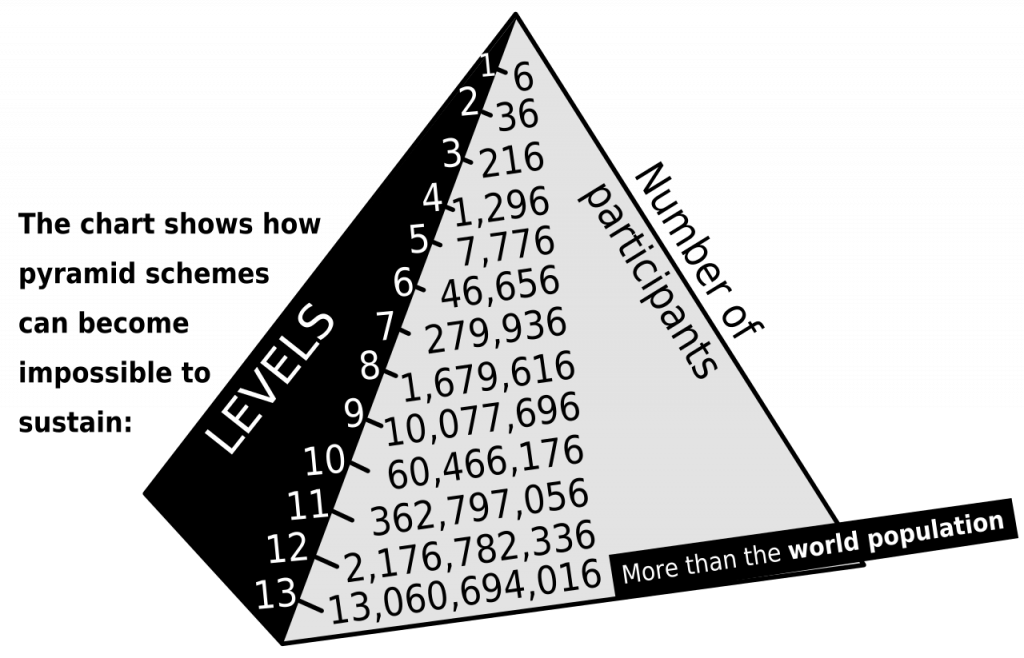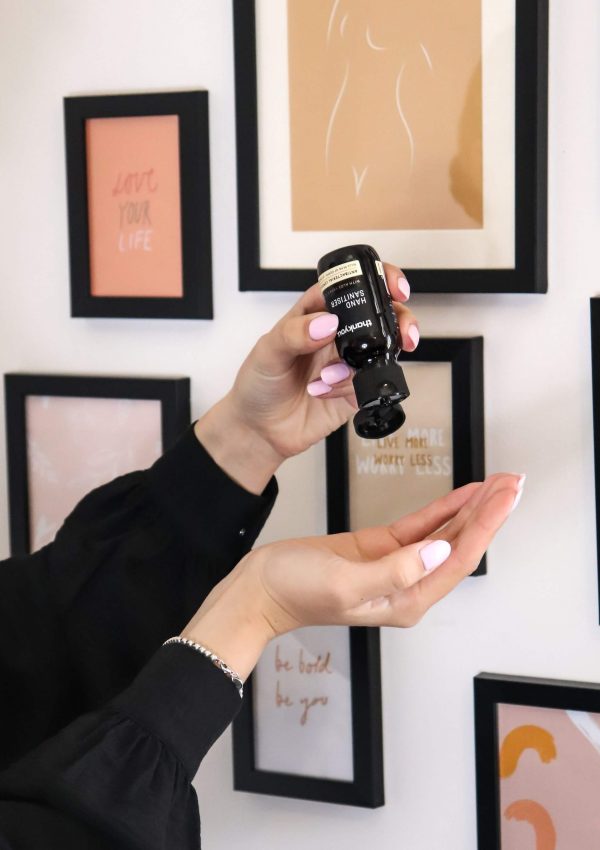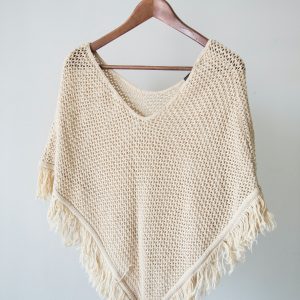Chances are, you’re here because you’re thinking about joining Avon and becoming an Avon rep in order to make a bit of extra cash.
Avon has been around forever, and if you’ve never had an ‘Avon lady’ knock on your door with a catalogue of products, you must have lived your entire life under a rock.
However, despite many of Avon’s sales reps turning to the online realm to sell their products rather than the door-to-door sales of years gone by, Avon is still a major player in the direct sales game.
Not too long ago, Not Your Boss Babe published a post about the ‘Avon opportunity,’ and why Avon might not be the best company to join if you’re looking to make a lot of money.
During the research for that article, it became very clear that many people are turning to Google to ask ‘Is Avon a Pyramid Scheme?’ reflecting larger concerns about the company as a whole.
Here’s a closer look into how Avon functions as a company and whether they are operating as an illegal pyramid scheme in disguise.
So, is Avon a Pyramid Scheme? Let’s Find Out.
Is Avon a Pyramid Scheme?
What is Avon?
Founded in 1886 by David McConnell, Avon is the OG direct sales company.
David, who used to work in door-to-door sales selling books to women, realised that what the women really wanted was perfume, and so he decided to start selling that instead.
His new venture flourished almost immediately, and Avon is now the fourteenth-largest beauty company in the world, selling everything from face creams and mascaras to lipsticks, hair serums and more.
Avon is the oldest direct sales company ever, and the second-largest MLM company in the world after Amway!
However, Avon was not always an MLM.
While they used to use the direct sales business model, they decided to change to a multi-level marketing structure in 2005, and today there are over 6.5 million reps around the world selling Avon products and recruiting others into the company.
What is MLM and is Avon an MLM?
In case you were wondering, yes, Avon is an MLM company.
MLM stands for multi-level marketing, and MLM companies are also referred to as network marketing companies.
MLMs have been around for years, and popular MLMs include Isagenix, Monat, Color Street and Norwex.
You don’t receive a salary in an MLM.
Instead, you earn money from selling products to people you know and recruiting others into the business.
When you recruit a new person and that person begins earning money, you will earn commission from the sales and recruits generated by THAT person.
This continues down in multiple levels (hence multi-level).
Imagine a triangle. If the person at the very top of the triangle recruits 10 people, and every one of those 10 people recruit another 10 people, and each one of those people recruit another 10 people, you’ll be making commissions from EVERYBODY within the triangle because they’re all in your direct downline (the people underneath you in an MLM are referred to as your ‘downline’ and you’re their ‘upline’).
All you had to do was recruit 10 people and you make money from 1100.
While you can always make money from selling whichever product your MLM company offers, most people in MLM companies prefer to recruit others because they stand to make a lifelong passive income from that person, whereas if they sell a product they’re just going to receive a one-off commission.
The ultimate aim of somebody in an MLM company like Avon then, is to have as many people in their ‘downline’ as possible, enabling them to form large amounts of passive income for little work.

MLMs and pyramid schemes
Lots of MLM companies find themselves being compared to illegal pyramid schemes, and Avon is no different – in fact, Avon actually flouted China’s anti-pyramid scheme law (yikes)!
But exactly what is a pyramid scheme?
Well, pyramid schemes are very similar to MLMs in the way that they are structured, but the main difference is that MLM reps can make money selling products as well as recruiting others into the business.
A pyramid scheme takes an initial investment from each member and promises to pay them for enrolling others into the scheme, so participants are buying an ‘opportunity’ to get rich.
However, as members of the scheme increase, recruiting quickly becomes impossible and so most members are unable to profit from the scheme or even make their initial investment back.
The Wikipedia diagram below illustrates just how unsustainable this is – after just a few levels of recruitment, the scheme would have recruited everybody on the planet and there would simply be no-one left to recruit!

Because it is impossible for most people to make any money in a pyramid scheme, pyramid schemes are illegal.
MLM companies are not illegal because there is a possibility to make money from selling products and not just recruiting.
With that said, many pyramid schemes produce products in order to look like a legitimate MLM company, but the people in those schemes aren’t actually making much (if any) money from product sales.
Companies like this are referred to as ‘pyramid schemes with products’ or ‘pyramid schemes in disguise,’ and if the FTC investigates one of these companies and discovers that individuals in them are making most of their money from recruiting, they can be shut down.
In order to see whether Avon is a pyramid scheme, we must dive in and look at just how this company operates.

Is Avon a pyramid scheme?
While Avon used to be a traditional direct sales business, they have used the MLM business model for over 15 years, meaning that in addition to selling products to retail customers, Avon reps also recruit others into the company.
This is known as ‘selling the Avon opportunity.’
Because of this shift towards recruitment, many people have questioned whether the Avon of old is now part of the shady world inhabited by MLMs such as Monat and Arbonne, who claim to be ethical businesses, but are eerily similar to pyramid schemes.
When we look at the tagline of Avon’s website, we can learn a lot about the company’s priorities.
The first thing that Avon promotes is the opportunity to ‘Become an Avon Representative,’ rather than the products themselves.

One of the tell-tale signs of a pyramid scheme is when a company shouts louder about signing up for their ‘opportunity’ rather than how great their products are.
However, we can’t accuse Avon of being a pyramid scheme based on a tagline alone.
In order to fully understand how Avon is functioning today, we need to start from the very beginning…
Avon announced its shift towards recruiting in 2005 as part of a total ‘restructuring programme’ designed to boost sales and cut costs.
In Avon’s 2005 report to the SEC, it announced its plans for ‘expanding our Sales Leadership programme and improving the attractiveness of our Representative earnings opportunity,’ describing the programme as a ‘multi-level compensation programme which gives Representatives the opportunity to obtain earnings from commissions based on sales made by Representatives they have recruited and trained.’
This focus on selling an ‘income opportunity’ was clear in Avon’s largest advertisement in its history – the 2009 Super Bowl.
Avon did not promote any of its cosmetic products in this commercial, which was delivered to the largest television audience of the whole year, instead hyping up the ‘income opportunity,’ and encouraging the audience to contact an Avon representative to find out more.
This might not seem like such a big deal at first, but when we look at why Avon changed its business model, things start to be a little more concerning.
In 2009, the number of active Avon Representatives at the end of the year was 3% more than the year before, while overall revenue was down 9%.
This means that in 2009, Avon was aggressively recruiting new salespeople into a declining market, intentionally saturating the market with more and more reps when the demand for products was just not there.
A very telling piece in a 2009 USA Today article seems to confirm that this was an intentional move.
‘Right now, our direct-selling opportunity is really the No. 1 product that we have to sell,’ said Geralyn Breig, the president of Avon North America.
Again, this might not seem like such a big deal at first, but when you think about the literal definition of a pyramid scheme, Geralyn’s statement becomes a lot more problematic.
As we discovered earlier, a pyramid scheme will take an initial investment from each member and promise to pay them for enrolling others into the scheme.
It is never about selling a product – it is selling an ‘opportunity’ to get rich.
If the Avon opportunity is the ‘No. 1 product,’ then isn’t Avon operating as a pyramid scheme?
Now, this could be poor phrasing on Geralyn’s part.
However, in Avon’s 2009 annual report to the SEC, they said themselves that gaining revenue by recruiting more reps who must buy products effectively combats reduced retail demand for Avon products.
The report states:
‘Total revenue for 2009 was negatively impacted by the continued recessionary pressure, as a lower average order received from Representatives more than offset an increase in Active Representatives. Average order remains challenging, particularly in our non-beauty categories. Sales of non-Beauty products declined 13% in 2009, consistent with the general retail environment. Sales of Beauty products declined 6% in 2009. The growth in Active Representatives during 2009 reflected our ongoing recruiting and training efforts.’

Diving into Avon’s intentions
Avon definitely has products, and they are arguably some of the most popular MLM products out there – I’m sure most people reading this have bought an Avon product at some point in time!
However, just because a company sells products doesn’t mean that it cannot be functioning as a pyramid scheme behind the scenes.
In order to establish whether or not Avon is a pyramid scheme, we must follow the money.
If Avon is functioning as a pyramid scheme, most Avon reps will make most of their money from their recruits rather than product sales.
Avon is one of the few MLM companies that doesn’t publish regular income disclosure statements, so unfortunately it is impossible to see where the money is really coming from.
However, it is certainly interesting to see that Avon continues to recruit new sales reps despite their overall revenue being at a constant decline.
The various statements made by Avon themselves give the biggest clues about their intentions and priorities as a company.
It is a fact that Avon are pushing the ‘opportunity’ rather than their product sales.
It is also a fact that Avon promote the ‘Avon opportunity’ as a legitimate way of making money, despite an ever-declining market.
Another fact is that 99.6% of people in MLM companies lose money, and any business that makes a conscious shift towards the MLM model will know this.
But why are Avon doing this?
Why don’t they eliminate the recruitment part of things and only focus on product sales?
Firstly, becoming an Avon Rep costs money.
You have to pay to join, you have to purchase products, sample packs, catalogues etc.
Avon reps end up spending significantly more money on Avon than a regular retail customer.
The truth about Avon is that as an Avon Rep, you are not the owner of your own Avon business.
You are an Avon customer.

FAQ
Avon cannot be considered a scam, but it does closely resemble a pyramid scheme and is not likely to make you financially successful.
Yes, Avon is a multi-level marketing company, also known as a network marketing company.
Yes, Avon is a legit website where you can order Avon products.
Most Avon reps make very little money or actually lose money, so selling Avon cannot be considered a good business opportunity.
Yes, if you sell Avon you are considered self-employed and must file your own taxes.
So, is Avon a pyramid scheme? | Final Thoughts
So far, the FTC has not ruled that Avon is a pyramid scheme, and so it would be slanderous to say here that it is one.
However, Avon seem to be making their priorities pretty clear, and you don’t have to be an expert to see parallels between Avon and an illegal pyramid scheme.
If you have any more questions about Avon, MLM companies or pyramid schemes, please don’t hesitate to leave them in the comments section below!
An Alternative to Joining Avon
If you’re looking for a side hustle or a work from home job, you may find these articles helpful:
Advantages and Disadvantages of Blogging
Easy Freelance Jobs for Beginners
Best Side Hustles for Single Moms
How to Sell Feet Pics Online
Secrets to Selling on Poshmark
Profitable Digital Products to Sell on Etsy
How to Become a Micro Influencer
That’s about it for today, but as always, if you have any questions then don’t hesitate to leave them in the comments section below and I will get back to you!
Until next time,
XOXO
Become a VIP






[…] are buying to then sell on to their own customers, or for their personal use, which is part of why Avon has been compared to a pyramid scheme.When we break these numbers down, we can see that on average, Avon reps are spending $144 per month […]